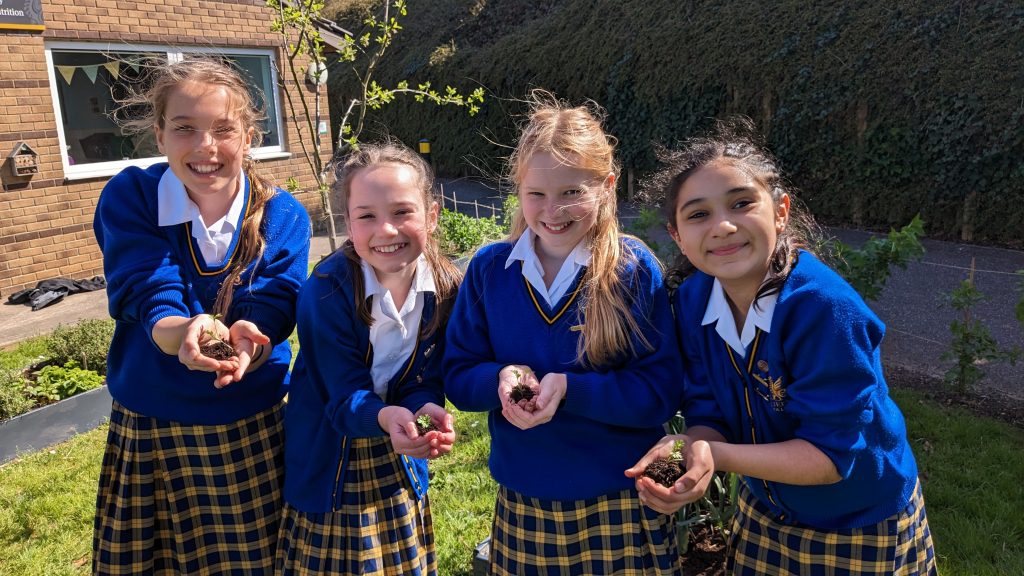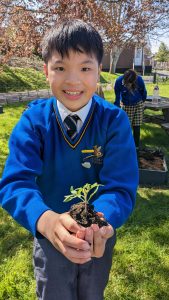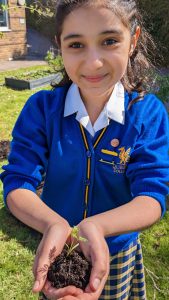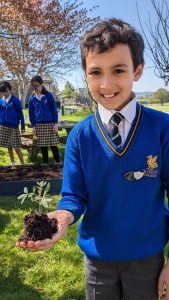The Earth Day 2023 theme is “invest in our planet”, and we think that perfectly captures our ethos at Queen’s College.
We are committed to growing our own organic food from herbs and leafy greens to fruit and vegetables here at Queen’s in our pupil’s Kitchen Garden.
Our aim is to introduce children to the wonders of nature and teach them about where all our food comes from. It is also a fun and gratifying activity that can instil a sense of responsibility and appreciation for the environment.
Our pupils growing their own food at school not only reduces carbon emissions by the absorption of carbon dioxide from the atmosphere but growing your own food also reduces carbon emissions through lowering all our Food Miles.
Food Miles is the distance between where something is grown to where it’s eaten and is a good way of looking at the environmental impact of foods and the carbon emissions from transporting foods. A recent study has shown that the food miles of fruits and vegetables are the largest contributor to carbon emissions from transporting food and the highest of the food miles. This is because fruits and vegetables often need to be refrigerated and many people demand out-of-season foods, which means a longer distance needs to be travelled to find fruits and vegetables in season.
Fresh foods like fruits and vegetables and living herbs travel on average around 1,500 miles to reach our plates, but growing our own food at Queen’s College cuts those miles for fruits and vegetables down to just metres.
“Food transport emissions add up to nearly half of the direct emissions from road vehicles,” said Mr Mann, Head of the Faculty of Art, Design, and Food, “Trying to eat more organic, local, seasonal alternatives where we can is one little thing we can all do to help provide a healthy planet for future generations”.
There are many more environmental benefits to growing our own food including reducing our consumption of single-use plastic, commonly wrapped around store-bought fresh fruits and vegetables and even supporting our community of birds, bees and butterflies. Plants not only protect the birds, bees, and butterflies but plants are as important to them as they are to our plants. It’s a mutually beneficial relationship.
As we continue to grow more of our own food at Queen’s we have also thought about the environmental impact of reducing our water consumption and we use recycled rainwater that is collected off the roof of the classroom building next to the pupil’s Kitchen Garden.
Finally, we turn our kitchen classroom food waste and any garden waste into the nutrient-rich soil for the pupil’s to grow new fruits and vegetables in the future.








